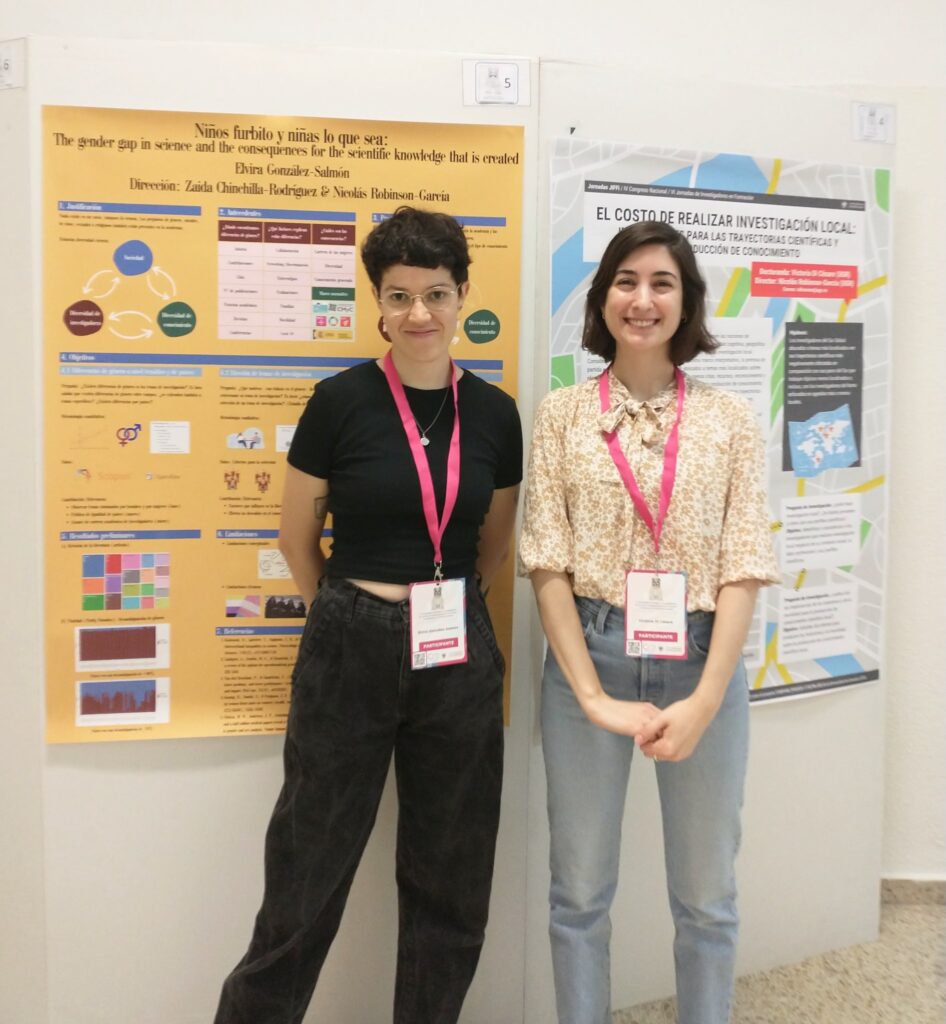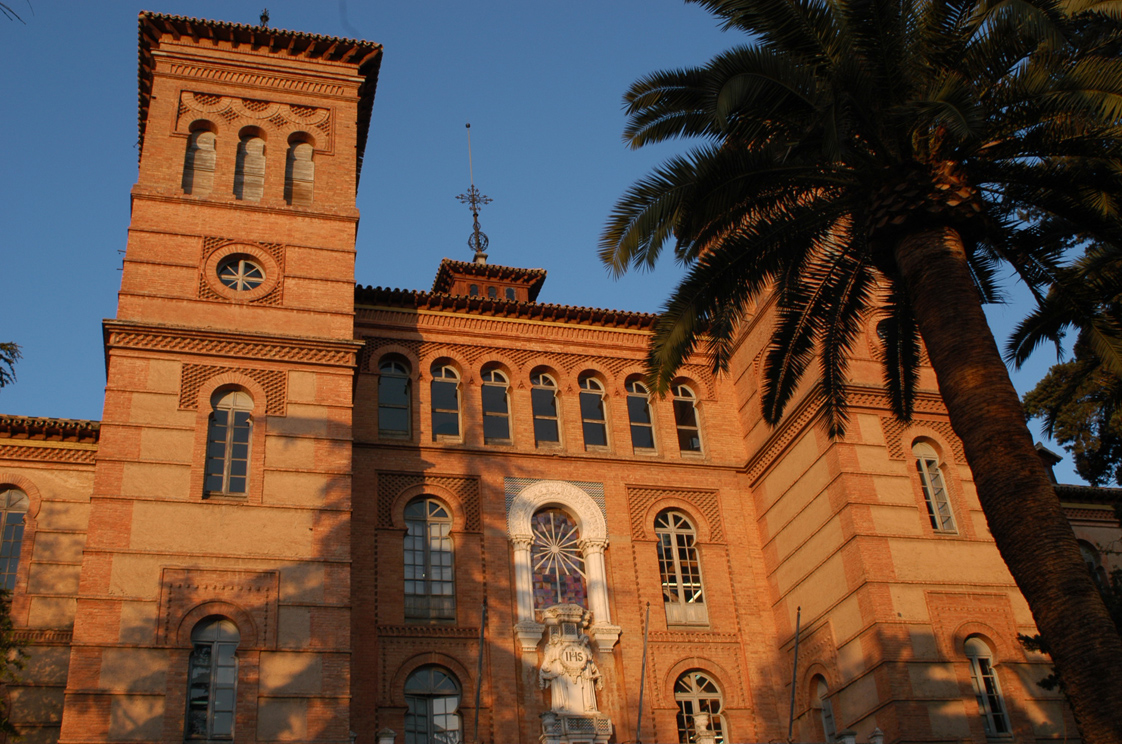Elvira González Salmón and Victoria di Césare, PhD candidates at the University of Granada, will receive funding to develop their projects on linguistic discrimination and scientific terminology with the support of artificial intelligence and interdisciplinary methodologies.
The Vice-Rectorate for Research and Transfer at the University of Granada has published the provisional resolution of the call for Precompetitive Research Projects for Young Researchers. This program, designed to support the academic careers of early-stage researchers who cannot yet apply for national-level funding, has accepted proposals under its Modality B from two PhD candidates of our unit: Elvira María González Salmón and Victoria Di Césare.

Elvira’s project, co-supervised by Sergio Guerrera García, a PhD candidate from the Department of Philosophy, aims to analyze the use of pejorative expressions applied to marginalized groups in scientific publications (articles in indexed journals, book chapters, academic textbooks, etc.). This will be achieved through an interdisciplinary methodology based on the implementation of bibliometric techniques alongside applied analysis within the fields of the philosophy of language and contemporary linguistics.
Victoria, on the other hand, will conduct her project in collaboration with Helena Ortiz Garduño, a PhD candidate from the Department of Translation and Interpreting, with the aim of developing a chatbot called VariTermBot. This chatbot will use artificial intelligence to assist researchers in finding the most accurate terminology and translations in scientific fields. The integration of bibliometric and translation methodologies will underpin the design of this tool, which will facilitate searches in areas where a single concept may have different expressions.
Through this funding opportunity, our colleagues will have the chance to lead impactful academic projects, showcasing their leadership and management skills in preparation for future, larger-scale initiatives. Both projects, set to unfold in 2025, will leverage innovative methodologies from diverse fields to address significant social challenges and explore the role of technology in driving social change.
